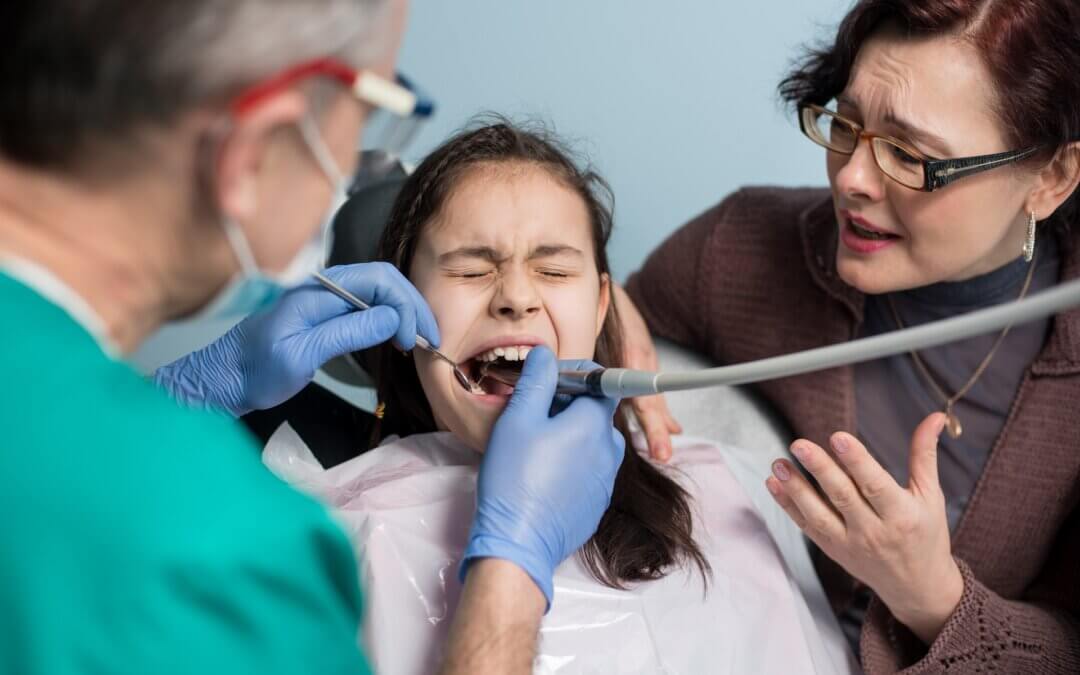Dental emergencies can happen at any time and often without warning, causing pain and anxiety. Whether it’s a broken tooth during a family dinner or sudden severe pain that wakes you up at night, knowing how to handle these situations can make a significant difference in the outcome. In our practice, we prioritize educating our patients on both the identification and the proper handling of dental emergencies, ensuring they feel prepared and protected.
We focus on immediate and effective responses that help minimize discomfort and prevent further complications. By familiarizing yourself with common dental emergencies and how to deal with them, you can take swift action that may not only save a tooth but also prevent a situation from worsening. This guide will walk you through the crucial steps to handle emergencies confidently, recognizing when at-home care is sufficient and when it’s critical to seek professional help.
Understanding how to manage these unexpected dental issues is part of maintaining overall oral health. In the following sections, we’ll explore practical tips and strategies not only for responding to emergencies but also for preventing them. Our goal is to arm you with knowledge and tools that ensure your dental health is never compromised, even in the most challenging situations.
Identifying Common Dental Emergencies
Knowing what qualifies as a dental emergency can save your teeth, and sometimes even your life. A dental emergency typically involves severe pain, bleeding, or trauma to the teeth or gums that require immediate attention. Common dental emergencies include knocked-out teeth, a cracked or broken tooth, severe toothache unrelieved by over-the-counter medications, abscesses, and significant swelling or bleeding. If you experience any of these symptoms, it’s crucial to act quickly. Understanding these situations can help you react effectively in preserving your oral health until you can receive professional care.
Immediate pain or changes in your oral condition often indicate serious issues that require prompt decision-making. For example, if a tooth is completely knocked out, the time from the incident to re-implantation is critical for the best chances of saving the tooth. Handling the tooth properly—touching only the crown, keeping it moist, and avoiding cleaning it with soap or chemicals—is key to potential successful re-implantation.
Immediate Steps to Take During a Dental Emergency
During a dental emergency, quick and appropriate actions can significantly impact the outcome. If you’ve knocked out a tooth, try to place it back in the socket without touching the root. If that isn’t possible, keep the tooth moist by placing it in milk or a saline solution. For a cracked tooth, immediately rinse your mouth with warm water to clean the area and apply a cold compress to the outside of your face to reduce swelling. To manage toothache, rinse your mouth with warm salt water and gently use dental floss to remove any food caught between your teeth.
If you’re experiencing bleeding, apply a piece of moist gauze to the area; press down for about 10-20 minutes or until the bleeding stops. For an abscess or serious infection, which can be life-threatening, try to keep the area clean and avoid any irritation until you can see a professional. It’s important to avoid applying aspirin directly to your gums or aching tooth, as this can burn the gum tissue. In every scenario, contact us immediately; we prioritize dental emergencies and will advise on the best immediate actions or arrange for urgent care.
When to Seek Professional Dental Emergency Care
Recognizing when to seek professional care during a dental emergency can drastically affect the outcome. It’s critical to understand that not all dental issues are emergencies, but certain situations require immediate attention to prevent further harm or permanent damage. For example, if you experience severe pain that over-the-counter pain relievers cannot alleviate, or if there is significant bleeding that doesn’t stop with pressure, these are signs you need to see a dentist immediately. Other urgent conditions include a knocked-out tooth, a loose or damaged crown or filling, or signs of infection such as swelling, extreme discomfort, or fever. We emphasize that timely intervention by professionals not only alleviates pain but also significantly increases the likelihood of saving damaged teeth or preventing complications.
Preventing Dental Emergencies: Tips and Best Practices
The best way to deal with a dental emergency is to prevent one from occurring in the first place. Maintaining regular dental check-ups allows us to catch and address potential issues before they escalate into emergencies. We also recommend wearing protective mouthguards during sports or physical activities, which can prevent a significant number of tooth injuries and traumas. Additionally, avoid chewing hard foods, ice, or other hard objects that could crack or break your teeth. Teaching good dental hygiene habits, including proper brushing and flossing, is another critical preventative measure that helps maintain strong teeth and healthy gums, reducing the risk of periodontal disease and other conditions that might lead to emergencies.
Understanding how to handle and prevent dental emergencies is crucial for maintaining long-term oral health. Our team at Smile Max 365 is dedicated to providing you with the necessary tools and information to manage dental health effectively. Whether you’re seeking routine care to prevent emergencies or need immediate treatment, we’re here to provide high-quality, compassionate care. Remember, taking proactive steps in dental health can protect you from severe complications and unexpected trips to the dentist. If you’re facing a dental concern or need consultation, don’t hesitate to contact the emergency dentists in Phoenix at Smile Max 365 today. Your health is our highest priority, and we’re ready to support you with top-tier dental care tailored to your needs.

